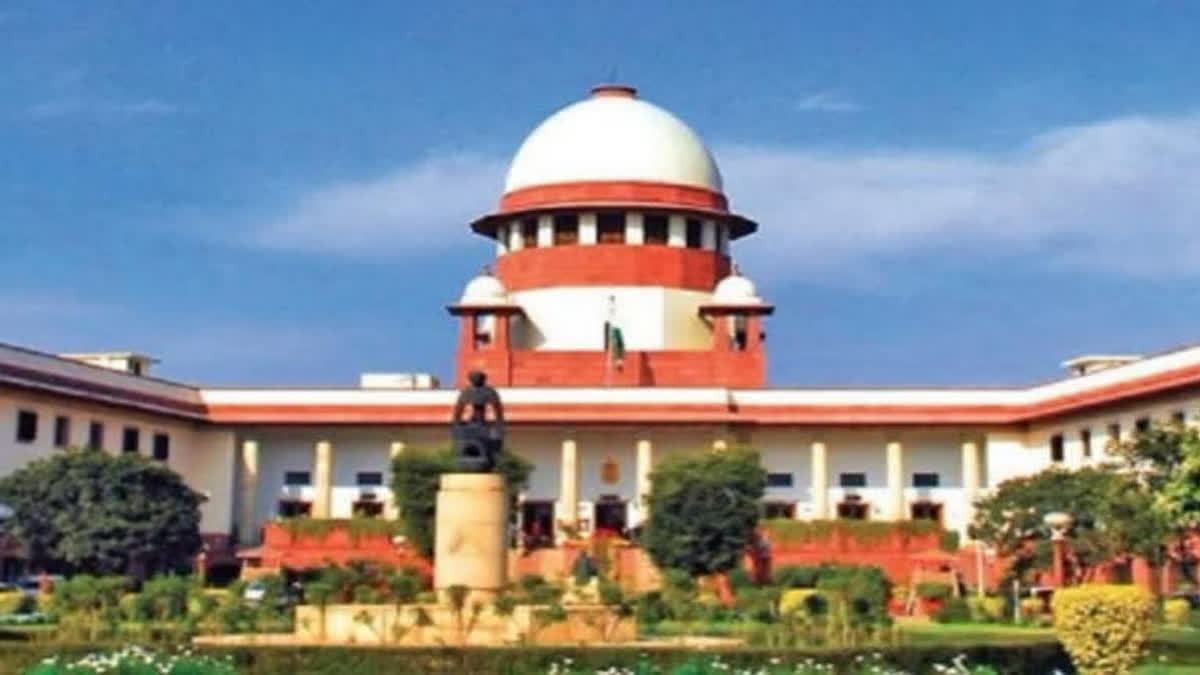New Delhi: The Supreme Court on Friday said it is sad to note that, the IPC remained in force for almost a period of 162 years until it was repealed and replaced by the Bharatiya Nyaya Sanhita on December 2023 which came into effect on July 1, 2024, the courts have not been able to understand the fine distinction between criminal breach of trust and cheating.
A bench comprising Justices J B Pardiwala and Manoj Misra said it is high time that police officers across the country are imparted proper training in law so as to understand the fine distinction between the offence of cheating viz-a-viz criminal breach of trust. “Both offences are independent and distinct. The two offences cannot coexist simultaneously in the same set of facts. They are antithetical to each other. The two provisions of the IPC (now BNS, 2023) are not twins that they cannot survive without each other”, said Justice Pardiwala, who authored the judgment on behalf of the bench.
The bench said when dealing with a private complaint, the law enjoins upon the magistrate a duty to meticulously examine the contents of the complaint so as to determine whether the offence of cheating or criminal breach of trust as the case may be is made out from the averments made in the complaint. Justice Pardiwala stressed that the magistrate must carefully apply its mind to ascertain whether the allegations, as stated, genuinely constitute these specific offences.
The bench said in contrast, when a case arises from a FIR, the responsibility is of the police – to thoroughly ascertain whether the allegations levelled by the informant indeed falls under the category of cheating or criminal breach of trust. “Unfortunately, it has become a common practice for the police officers to routinely and mechanically proceed to register an FIR for both the offences i.e. criminal breach of trust and cheating on a mere allegation of some dishonesty or fraud, without any proper application of mind”, said Justice Pardiwala.
Justice Pardiwala said: “It is indeed very sad to note that even after these many years, the courts have not been able to understand the fine distinction between criminal breach of trust and cheating”.
The apex court allowed an appeal by Delhi Race Club (1940) Ltd. and others challenging a decision of the Allahabad High Court, which rejected a plea by the appellant and declined to quash and set aside the summoning order dated February 28, 2023, passed by the additional chief judicial magistrate, Khurja, Bulandshahar in a 2021 complaint case.
Justice Pardiwala said if it is the case of the complainant that a particular amount is due and payable to him then he should have filed a civil suit for recovery of the amount against the appellants herein. “But he could not have gone to the court of Additional Chief Judicial Magistrate by filing a complaint of cheating and criminal breach of trust”, said the bench.
The apex court noted that the case at hand is of an unpaid seller and it is the case of the complainant that he used to regularly supply consignments of grains & oats meant for horses at the Delhi Race Club. The complainant used to raise invoices in favour of the club and the club used to pay the requisite amount. “However, according to the complainant after 2017, the club stopped making the payment. It is the case of the complainant that an amount of Rs. 9,11,434/- is due and payable by the appellants towards the supply of the consignment of oats”, noted the bench.
The bench said according to the high court, the intention on the part of the company was prima facie mala fide and the payment of Rs. 9,11,434/- could be said to be intentionally withheld.
The apex court said the order passed by the high court is a fine specimen of total nonapplication of mind. “There is no manner of any doubt whatsoever that in case of sale of goods, the property passes to the purchaser from the seller when the goods are delivered. Once the property in the goods passes to the purchaser, it cannot be said that the purchaser was entrusted with the property of the seller. Without entrustment of property, there cannot be any criminal breach of trust”, said the bench.
Justice Pardiwala said thus, prosecution of cases on charge of criminal breach of trust, for failure to pay the consideration amount in case of sale of goods is flawed to the core. “There can be civil remedy for the non-payment of the consideration amount, but no criminal case will be maintainable for it”, he said.
The bench said it appears that till this date, the complainant has not filed any civil suit for recovery of the amount which according to him is due and payable to him by the appellants. “He seems to have prima facie lost the period of limitation for filing such a civil suit. In such circumstances referred to above, the continuation of the criminal proceeding would be nothing but abuse of the process of law”, said Justice Pardiwala.
The apex court set aside the high court order and also the order passed by the additional chief judicial magistrate, Khurja, Bulandshahar taking cognizance upon the complaint.
“We direct the Registry to send one copy each of this judgment to the Principal Secretary, Ministry of Law & Justice, Union of India and also to the Principal Secretary, Home Department, Union of India”, said the bench, concluding the judgment.
Read More




